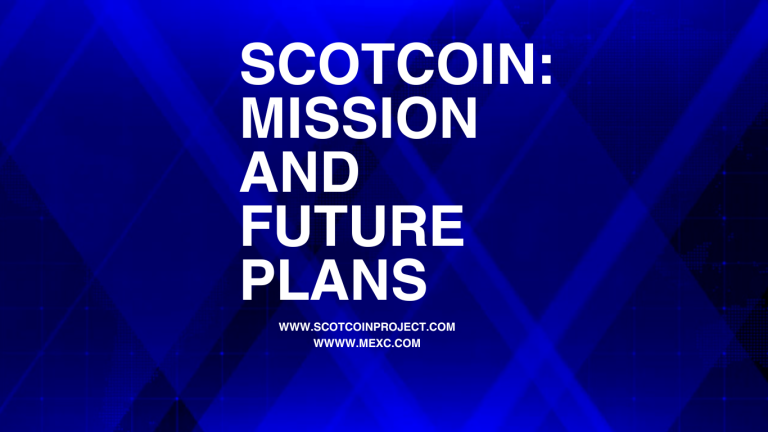Temple Melville – CEO of The Scotcoin Project – spoke to Chris Beverly at Bitcourier recently. Here’s what they discussed.
Bitcourier: Thanks for joining us Temple. Could you begin by telling us a little about your yourself?
Temple: Thanks for having me! I’m Temple Melville (Temple), and I am the CEO of the Scotcoin Project CIC. I am a professional lecturer on Blockchain and crypto with a weekly column in The Digital Commonwealth!
Bitcourier Scotcoin has been around since 2013, making it one of the earliest country-related digital currencies. What was the original inspiration behind launching Scotcoin, and how has that vision evolved over time?
Temple: Initially the thought was that had the Referendum on Scottish Independence been won in 2014, Scotland would have potentially needed some method of transferring value had the GB Pouind become unavailable. In the event the referendum was lost and a new use had to be found for Scotcoin. The person who created the first Scotcoin Blockchain was a one man band and he rapidly lost interest after the first year or so. Myself and two business partners bought out the IP in early 2016, and set about making the token fit for purpose.
Bitcourier: Why was it important to structure The Scotcoin Project as a Community Interest Company (CIC) instead of a traditional foundation or DAO? What advantages does this give in building trust? A CIC is a specific type of company.
Temple: No value can revert to directors or shareholders, and in the event of a winding up, all assets have to go to charities as agreed with the Office of Charity Regulator. Believe me, this focuses one’s mind very clearly!
Bitcourier: You describe Scotcoin as an “ethical cryptocurrency.” In your view, what does ethical crypto look like, and how does Scotcoin embody that standard? An ethical crypto has several aspects that I think are important.
Temple: Firstly, from our point of view, we have to do good and that is our primary function. We are here to help people in need. Secondly, we have to work in a green and sustainable way and this can readily be seen in how we take unwanted goods and services and repurpose them to do good. Thirdly, our token, being ERC20 on the Ethereum blockchain, uses a tiny fraction of the energy that proof of work blockchains use. Whereas Bitcoin uses some 0.7% of the entire global electricity availability, I say in my lectures Ethereum uses a dozen tumble driers and a few hair dryers.
Bitcourier: You’ve had detailed discussions with the FCA about Scotcoin’s regulatory position. What were the biggest challenges in clarifying your legal framework?
Temple: We don’t operate custodial wallets or an exchange, nor do we hold client funds. All transactions are channelled through an exchange which means all KYC and AML functions are handled by them. Finally, we don’t sell tokens – we give them away.
Bitcourier: Why did you choose to issue Scotcoin as an ERC-20 token on Ethereum rather than building a standalone blockchain?
Temple: Several reasons. Firstly, we spent some time working on that and rapidly decided that if we wanted longevity, we could not rely on having our own teams of miners long term. People die get fed up and so on and as a result being on a major blockchain like Ethereum meant it was forever. Secondly ERC20 tokens are possibly the most numerous of all and finally we knew that the change from Proof of Work to Proof of Stake was coming with all the additional green and energy saving aspects.

Bitcourier: Scotcoin is designed to fight poverty and deliver social benefit. Can you share specific examples where Scotcoin has already made a measurable impact in people’s lives?
Temple: Just two for now. As an example within the last couple of weeks we acquired some 2000 items of clothing. Those clothes were due to be burned. We rescued them and gave them to a major UK charity, Emmaus, who delivered them within 24 hours to more than 1000 people in need of clothes. The other one was bottled water. Without going too much into the whys and wherefors we acquired several containers of bottled water. These were delivered to a number of food banks which meant they had a couple of months supply for their customers.
Bitcourier: Scotcoin emphasizes low-to-no fees compared to PayPal or Western Union. Do you see remittances and cross-border payments becoming a primary use case?
Temple: It should be and we hope it will. Crypto’s best use is transfer of value and we certainly believe we can handle this.
Bitcourier: Scotcoin is listed on MEXC. How do you balance exchange listings for liquidity with the project’s ethical, community-first mission?
Temple: Being listed on MEXC has broadened our horizons quite dramatically and brought us both suppliers and customers. As far as we are concerned, being listed has meant we are better able to offer solutions to people who are interested in what we do.
Bitcourier: If Scotcoin succeeds in becoming a widely used ethical cryptocurrency, what would Scotland and the world look like in 2030?
Temple: I always talk about WIR which is a neo-currency in Switzerland and has been since the 1930s. Today, that transacts over $7billion has more than 70,000 businesses that use it and around 650,000 people who use it regularly. My dream is that we emulate it and this would have a profound effect on the Scottish economy.
A version of this interview appears on www.bitcourier.co.uk




